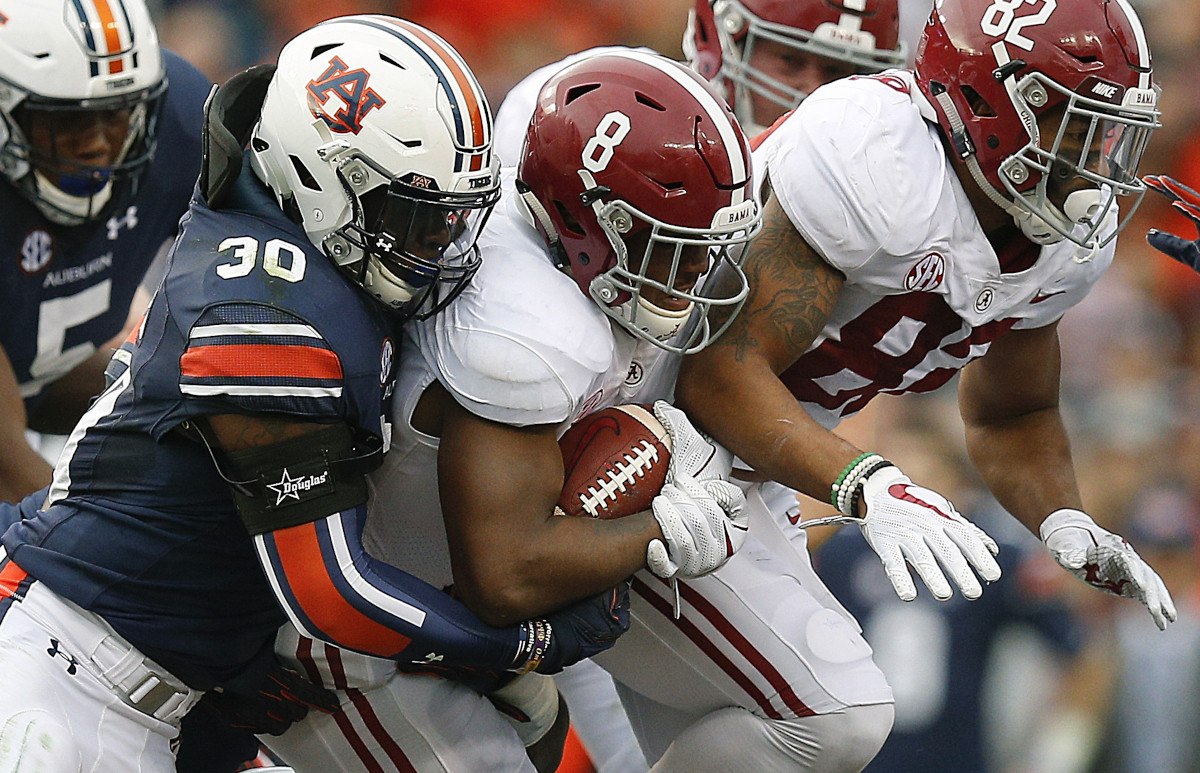The SEC and Pac-12 both revealed their plans for the 2020 college football season this week, and they don’t include playing non-conference games.

Both Power 5 conferences announced that they will play 10-game schedules this year, with teams only competing against their in-league rivals.
ACC Loses Out on SEC Rivalry Matchups
Those plans differ from the ACC’s schedule, revealed earlier this week. The ACC also implemented a 10-game schedule – including Notre Dame – that allows for one additional non-conference matchup, provided it takes place within each school’s home state.
The ACC made its decision partially on the idea that some schools might still get to play their SEC in-state rivals.
“Clemson aggressively lobbied the ACC to include an additional non-conference game for the primary purpose of maintaining our long-standing rivalry game with South Carolina,†Clemson athletic director Dan Radakovich said in a statement. “We will work to fill the opening on our schedule immediately.â€
According to the SEC, which made its announcement on Thursday, the conference chose the plan that made the most sense for its schools and their students.
NEWS | @SEC establishes new football start date of September 26 and Conference-only football competition.https://t.co/UhFFOfQ2lK
— Southeastern Conference (@SEC) July 30, 2020
“This new plan for a football schedule is consistent with the educational goals of our universities to allow for the safe and orderly return to campus of their student populations and to provide a healthy learning environment during these unique circumstances presented by the COVID-19 virus,†SEC commissioner Greg Sankey said in a statement. “This new schedule supports the safety measures that are being taken by each of our institutions to ensure the health of our campus communities.â€
College Football Playoff Committee Faces Difficult Choices
The Pac-12 released its proposed 10-game schedule on Friday, which will conclude with a championship game on Dec. 18 or 19 in Las Vegas.
Pac-12 approves 2020 football schedule and plans for fall sports.
Full info âž¡ï¸ https://t.co/GSrX1TOFS2#Pac12FB | #BackThePac pic.twitter.com/9sUq38VwY6
— Pac-12 Conference (@pac12) July 31, 2020
The conference included two bye weeks, including one at the end of the season on Dec. 12, to give teams the best chance possible to conclude their seasons. However, Pac-12 officials acknowledged that schools might not make it through 10 games.
“We recognize that the best-laid plans may not come to fruition, whether being able to start on [Sept. 26], play a complement of a minimum number of games we feel would be required for a College Football Playoff, and we may start but not be able to finish, and then we will have to adjust,†Pac-12 commissioner Larry Scott told ESPN. “There are many, many scenarios still on the table, but we felt it’s critical at this point to be able to give some clarity in our plan.â€
Some college football teams plan to play their first games on Aug. 29, but the various schedules conferences have released will see some schools start as much as a month later. It’s likely that teams will play a varying number of games, and there will be few non-conference matchups — factors that will complicate selecting teams for a College Football Playoff.
“Since there won’t be as many non-conference games as normal, certain tools used by the committee, such as head-to-head results and results against common opponents, will have limitations this year,†College Football Playoff executive director Bill Hancock told ESPN. “The fundamental mission has not changed – that is, rank the best four teams based on the schedules that the conferences play.â€











